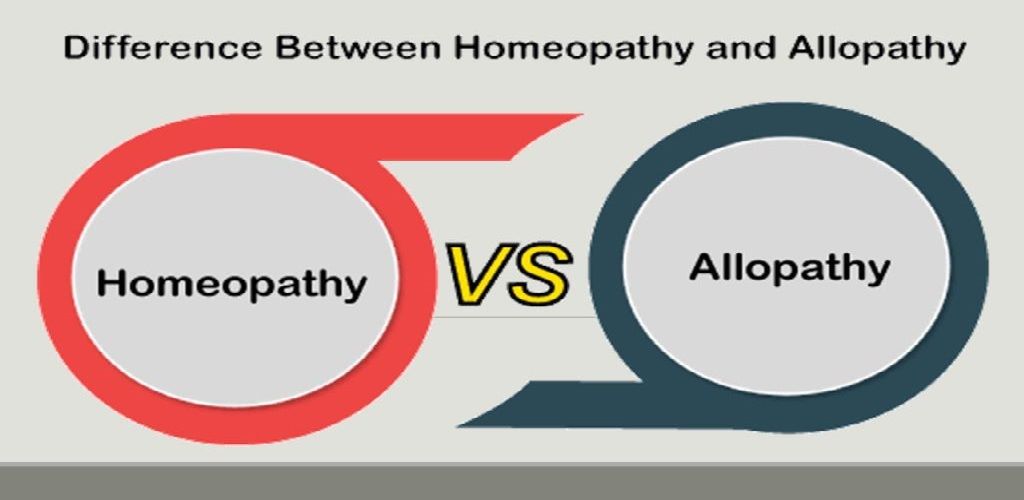In the world of medicine, there are two main ways to treat illnesses; homeopathy and allopathy. Both try to help people feel better when they’re sick, but they do it in very different ways. But if you know the right differences between them, you can let people decide the ideal treatment for them.
Imagine you have a headache. If you go to a homeopathic doctor, then they might give you a tiny bit of something that could cause headaches in a healthy person, but it’s been diluted so much that it will not harm you. They believe this helps your body heal itself. On the other hand, if you go to an allopathic doctor, they might give you a painkiller to help with your headache. They focus on using medicines and treatments that are proven to work through scientific research.
People often debate which approach is better because they have different beliefs about how the body heals. Homeopathy thinks about the whole person and tries to fix the root cause of the problem. Allopathy uses medicines and surgeries that have been tested and proven to work.
In this post, we’ll discuss the key differences between homoeopathy and allopathy in medical approaches.
What is Homeopathy?
Homeopathy is a form of alternative medicine that believes in the principle of “like cures like.” It means that a substance that can cause certain symptoms in a healthy person might be used in a highly diluted form to treat similar symptoms in a sick person. Homeopathic medicines are often prepared by diluting natural substances, such as plants, and then vigorously shaking them. This process is called potentization and is believed to enhance the healing properties of the substance.
One of the key ideas behind homoeopathy is that these diluted remedies stimulate the body’s self-healing abilities without causing potential side effects. However, opinions on the effectiveness of this medical approach may vary among medical professionals and researchers.
If you’re considering homoeopathic treatment, it’s important to seek guidance from a qualified practitioner. They can provide personalized advice and recommend the most suitable remedies for your specific condition.
Understanding Allopathy
Allopathy is a type of medicine that focuses on treating the symptoms of a disease rather than addressing its root cause. The term “allopathy” comes from two Greek words: “allos,” meaning opposite, and “pathos,” meaning to suffer. Essentially, it involves treating symptoms with substances or treatments that produce effects opposite to those of the disease. For instance, if someone has constipation, a doctor might prescribe a laxative to relieve it.
Some common allopathic medicines include painkillers, diabetic drugs, antibiotics, and migraine medication. While these medications are often effective in alleviating symptoms, they can also have side effects, which can sometimes lead to doubt among individuals. It’s important to note that only licensed medical doctors can prescribe allopathic medications, ensuring they are used safely and appropriately.
Differences Between Homoeopathy and Allopathy?
Let’s take a look at the common differences between homoeopathy and allopathy.
| Parameters | Homeopathy | Allopathy |
| Working Concept | Homeopathy follows the principle that treating the underlying cause of an ailment is essential for complete healing. | Allopathy is based on the belief that the cure for a disease and its cause are distinct entities, treated separately. |
| Recovery Time | Homeopathic treatments may require some time to show noticeable improvement as they aim to address the root cause of the condition. | Allopathic medications often show immediate results, which provide fast relief from symptoms. |
| Side Effects | Homeopathy is associated with minimal to no side effects as it focuses on gentle, natural remedies to stimulate the body’s healing mechanisms. | Allopathic treatments, while effective, may produce side effects due to the potent nature of pharmaceutical drugs. |
| Effect of Dosage | Homeopathic medicines are typically administered in low doses, which are believed to enhance their effectiveness without compromising the body’s immune system. | Allopathic medications may involve higher doses, offering rapid relief but potentially impacting the body’s immune response. |
| Global Acceptance | Homoeopathy is not as widely accepted in mainstream medicine and often faces doubts in some circles. | Allopathy is widely accepted and integrated into modern healthcare systems, being the predominant form of medical treatment. |
What Does Health Insurance Cover in Allopathy and Homeopathy?
Allopathy:
- Consultations
It includes appointments with allopathic doctors or specialists for diagnosis and treatment planning.
- Diagnostic tests
It typically covers a variety of tests and screenings conducted to diagnose medical conditions.
- Treatments
The coverage includes various allopathic treatments recommended by healthcare providers, such as physical therapy, chemotherapy, or radiation therapy.
- Medications
It covers prescribed medications, including both brand-name and generic drugs, depending on the policy.
- Hospital Stays
It includes expenses related to hospitalization, including room charges, nursing care, and other services, which are usually covered.
- Surgeries
These kinds of procedures are performed by allopathic surgeons, including pre-operative consultations, the surgery itself (all types of surgeries except cosmetic surgeries), and post-operative care.
Homoeopathy:
Now, let’s discuss what is covered under homoeopathic treatment.
- Homoeopathic consultations
It includes appointments with homoeopathic practitioners for assessments and personalized treatment plans based on the principles of homoeopathy.
- Treatments
Coverage includes treatments provided within the homoeopathic framework, such as the administration of highly diluted remedies.
- Medications
It may cover the costs of homoeopathic medications prescribed by qualified homoeopaths. These medications are typically prepared from natural substances and administered in highly diluted forms.
Frequently Asked Questions
Listed below are the frequently asked questions related to homoeopathy and allopathy treatments in the healthcare sector.
Homoeopathic treatment may be right for people looking for natural and holistic care for various health issues. It’s often chosen by those interested in alternative medicine.
While homoeopathy can offer support and help manage symptoms for cancer patients, it’s not the main treatment for serious diseases. People with conditions like cancer should still see oncologists and other doctors for their care.
Based on recent research and experience, it’s okay to use homoeopathy along with other treatments or medicines. It’s usually best to wait about half an hour between taking homoeopathic remedies and other medications.
Both homoeopathy and Ayurveda are usually safe since they use natural ingredients. Allopathy, though, can have side effects. However, it’s closely regulated to ensure the safety of medicines.
Allopathy focuses on treating specific parts of the body affected by an illness. But this approach can sometimes cause side effects or spread infection. Homeopathy, on the other hand, is generally considered safe because it doesn’t usually affect other parts of the body.








